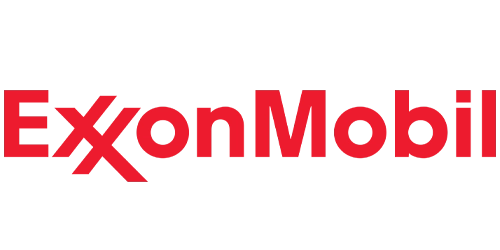
ExxonMobil, a global energy company, is committed to responsibly meeting the world’s energy needs. Focusing on innovation and sustainability, it strives to deliver reliable and affordable energy solutions while minimizing environmental impact and contributing to community development.
COMPANY LINKS
TAGS
- CEI |
- DEI |
- ESG |
- Open Secrets |
- Pride Sponsor
Updated 7 months ago
How woke is Exxon Mobil?
Introduction
Exxon Mobil, a multinational oil and gas powerhouse, has recently garnered attention for its approach to progressive policies. While the company markets itself as forward-thinking, its actions in diversity, equity, inclusion (DEI), and sustainability often leave critics questioning the sincerity behind the corporate agenda.
This review dissects Exxon Mobil’s financial contributions, DEI goals, mandatory training, LGBTQ+ initiatives, and marketing strategies, exploring the balance between authenticity and performative wokeness.
Financial Contributions to Progressive Causes
Exxon Mobil’s financial footprint reflects a calculated alignment with progressive causes while simultaneously courting traditional corporate interests. For instance, the ExxonMobil Foundation is one of the largest global corporate donors, investing in education, women’s empowerment, and climate resilience initiatives.
According to their foundation, “The ExxonMobil Foundation is one of the largest corporate donors globally, funding initiatives in education, women’s empowerment, and climate resilience.” However, its political contributions complicate this narrative. Reports suggest that ExxonMobil has poured millions into lobbying efforts on energy policies, often funding groups accused of greenwashing.
As noted in a critical review, “ExxonMobil has spent millions lobbying Congress on energy policy, often under scrutiny for backing groups accused of greenwashing.” This dual approach reflects a company attempting to please progressive stakeholders and traditional energy allies.
Prioritization of DEI Policies
Exxon Mobil publicly prioritizes DEI initiatives, claiming an unwavering commitment to workplace inclusivity. A statement from its Brazilian branch emphasizes, “Inclusion and diversity at ExxonMobil focus on fostering a workplace where all employees feel valued and included.”
This philosophy extends into its European operations, where efforts to create equitable opportunities take center stage. As its newsroom describes, “ExxonMobil’s European initiatives promote respect and inclusion, with a commitment to creating equitable opportunities across genders and cultures.”
Despite these affirmations, such policies prioritize identity over merit, raising concerns about tokenism and superficial inclusivity measures. These debates spotlight the tension between DEI’s noble goals and their execution in corporate environments.
Mandatory Training Sessions
While Exxon Mobil’s public disclosures on mandatory training are limited, its broad DEI commitments suggest some unconscious bias or diversity training. Transparency in this area would clarify whether these programs serve to build awareness or impose progressive ideologies.
Support for LGBTQ+ Initiatives
Exxon Mobil’s evolution on LGBTQ+ policies showcases a mix of progressive updates and controversial decisions. Its adoption of LGBTQ+ protections in non-discrimination policies was a significant milestone. As the Washington Blade reported, “ExxonMobil’s updated non-discrimination policy marks a significant step forward, incorporating LGBTQ+ protections.”
However, this progress is undercut by decisions such as banning Pride flags on corporate campuses, which is inconsistent with the company’s purported values. “ExxonMobil’s stance on banning the Pride flag from corporate campuses was seen as inconsistent with its public claims of inclusivity,” notes a critique from Atmos Earth.
These contradictions fuel accusations of “rainbow-washing,” where corporations superficially support LGBTQ+ causes without substantive commitments.
Marketing and Branding
Exxon Mobil’s marketing strategy leans into themes of sustainability and innovation, though skeptics question its authenticity. Campaigns highlight the company’s investments in renewable energy research and environmental initiatives.
Their advertising report states, “Our campaigns are designed to reflect ExxonMobil’s dual commitment to energy innovation and environmental stewardship.” However, this messaging often overshadows the company’s ongoing contributions to fossil fuel dependence. These campaigns illustrate the thin line between genuine sustainability efforts and strategic public relations.
Conclusion
Exxon Mobil’s approach to progressive policies reveals a calculated attempt to balance modern social expectations with its traditional corporate identity. From DEI and LGBTQ+ initiatives to sustainability-focused marketing, the company is willing to adapt—but often in performative rather than transformative ways. These inconsistencies highlight the challenges of balancing corporate strategy and authentic social responsibility.
Our rating is based

